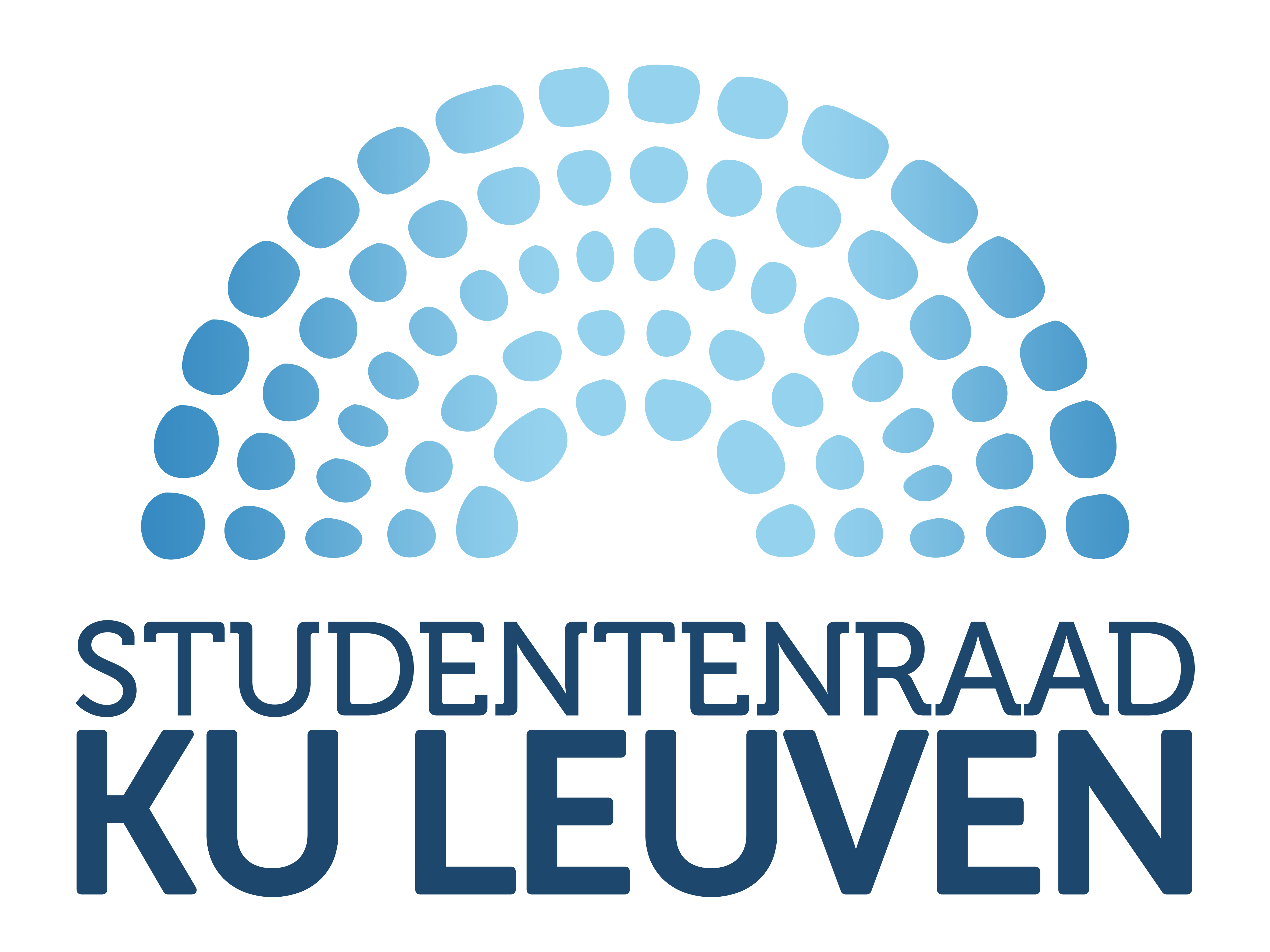FAQ
Am I entitled to feedback after my exam?
The regulations on education and examinations specify that each student is entitled to an individual or collective feedback moment after the announcement of the exam results. You can get such a moment up to 7 calendar days after the announcement of your results. The instructor has to communicate via Toledo where and when his/her moment is/can continue. If that doesn't happen, it is best to send him or her an email.
At the feedback moment you can always bring someone along as an observer. If you want to bring a fellow student, he or she must have passed the course.
When can I use my tolerance credits?
If you are a student following a bachelor, bridging or preparatory program, you may tolerate 10% of the total credits of your program. If you want to tolerate a course, you must achieve at least an 8 for the course, have at least a CSE of 50% and have sufficient tolerance credits available. If you follow a bachelor program of 180 credits, you have 18 credits of tolerance credit that you can use throughout your three years. You can, for example, tolerate three courses of six credits.
If you can graduate by using credit that you have not yet used, this happens automatically. If you don't want to, you have 5 calendar days after the announcement of the decision to let the faculty know.
If you cannot graduate, you have to tolerate the courses themselves. For this purpose, you have 15 calendar days after the announcement of the exam results.
More information about tolerances can be found here.
For students starting their program in academic year 2021-2022, the system will be adjusted. The tolerance credits will then be restructured and the study progress measures will be adjusted as well. More information about this can be found in the FAQ-question about the so-called "first milestone".
What is "the first milestone"?
The answer to this question is only relevant for students starting a bachelor or bridging program from academic year 2021-2022. For all other students, the current study progress measures (see the FAQ question on study progress measures) with the current tolerance system(see the FAQ question on tolerance) apply.
For bachelor students, the first milestone is the achievement of all courses in the first year. The second milestone is obtaining the bachelor's degree and the third milestone is obtaining the master's degree. For students starting their education in 2021-2022, there are a number of study progress measures attached to the first milestone. A distinction is made between students who take the entire bachelor year in one go and students who have exemptions, who do not enroll in the entire first year at once, ...
Starting bachelor students who enroll in the full first year at once are subject to the following study progress measures:
- 30% CSE rule: After 1 year, you must have achieved 30% of your first milestone. If you do not meet this requirement, you will be denied enrollment in that program for 1 year. If you do not obtain 30% CSE two years in a row (in two different programs), you will be excluded from all programs at KU Leuven for 3 years.
- After two years, you must have reached your full milestone.
- You may not take a course four times.
- As long as you have not reached your milestone, you may only do a maximum of 60 credits each year. Exceptions are possible. For example: students enrolling in the TWIN program Mathematics Physics can take more than 60 credits each year.
Separate deliberation rules also apply. For courses in the first year you will be waived. This means that the exam committee decides whether or not you don't need to take the course anymore. They do this based on the following criteria:
- The courses for which you failed are combined no more than 12 credits.
- On the subjects you did not pass you always got a grade higher than or equal to an 8. Optionally, you may also have one 7, but that may only be your only failure for a subject.
- You have an average of at least 50%
If you meet these conditions, you will be waived for all your courses. For example, if you have one 8 and one 6, you will not be deregulated for either course and you will have to take them both back.
For courses from the later bachelor years, you can simply tolerate a maximum of another 12 credits (10% of the remaining credits).
Other rules apply for students with exemptions, students who don't take their first milestone at once for health reasons, ... If you are in such a category, it is best to contact the Academic Career Counselor to ask what rules apply for you. Usually these rules correspond to a percentage of the first milestone, so all of the above rules apply but "discounted" ta take into account the fact that you don't do everything. For example, if you take 40 credits from the milestone, you will be waived for a maximum of 8 credits (12 * 2/3 = 8).
For bridging students the same measures apply as for starting bachelor students.
What are the "regulations regarding the advancement and monitoring of your academic records"?
The "regulations regarding the advancement and monitoring of your academic records" are conditions you need to meet in order to continue your studies. They ensure that you don't study in one program for too long without success. There are three measures.
The first is the simplest: you cannot take the same course (or a course equivalent) four times. As with the other measures, you can request an exception to do so. The exception will only be accepted in case of serious reasons. More information about the procedure can be found here.
The second measure is the 30% CSE rule. This rule only applies to bachelor students who still need to do more than 120 credits to get their diploma and to bridging students. If your CSE is less than 30%, you can no longer enroll in that program for one year. If your CSE is less than 30% for two consecutive years (i.e. for different programs), you can no longer enroll at KU Leuven for 3 years. This last rule only applies from 2021-2022. More information about the 30% CSE rule can be found here.
The third measure is the 50% CSE rule. This rule also only applies to bachelor students who still need to do more than 120 credits to get their diploma and to bridging students. If you obtain less than 50% CSE for two years in a row, you may no longer enroll in any bachelor or bridging program at KU Leuven for one year. More information about this study progress measure can be found here.
What if I run out of learning account credits?
If you already have a master's degree, this doesn't matter much. However, if you have not yet obtained a bachelor's degree, you will no longer be able to enroll at KU Leuven. If you do have a bachelor's degree and you are following a master's degree that clearly follows your bachelor's degree, you will still be able to enroll, but with a doubled enrollment fee.
More information about the learning account credits can be found on the general information page of learning account at KU Leuven.
Don't know where to find your learning account? In KU Loket you can go to your academic progress file. There you can click on "learning account" and your learning account will appear.
Can I appeal my result?
It is possible to lodge an appeal against the point you received for a certain course. You must lodge your appeal at the latest 7 calendar days after the announcement of your result. Attention! Filing an appeal is a very heavy procedure. It is best to first contact your study career counselor and the professor of the course before you decide whether lodging an appeal is the best solution. More information about making an appeal can be found here.
What do all those abbreviations stand for?
Without wanting to be exhaustive, here are some of the most commonly used abbreviations at our university.
- A/BAP: assistant/special academic staff (= assistants and (post-) doctoral students)
- AP: Academic staff (ZAP, ATP, AAP, BAP)
- AR: Academic Council, the highest decision-making body at KU Leuven
- ATP: administrative and technical staff (= people who draw up exam schedules, maintain/operate machines, etc.)
- AV: General Assembly
- Ba: Bachelor
- BaMa: Bachelor/Master
- COBRA: Cooperative, Reflection and Action - Checks & Balances: the quality care method of KU Leuven.
- CSE: Cumulative Study Efficiency
- EM: Educational Master
- Phase: the year in which you are in your study program
- FO: Faculty Student Consultative Body - OOR is one of them.
- FPOC: Faculty POC
- FR: Faculty Board
- GeBu: Joint Office, the highest administrative body of KU Leuven; here the rector, the vice-rector and the chairman of the KU Leuven Student Council are seated.
- IES: Individual examination schedule
- ISP: Individual Study Program
- Ma: Master
- MaNaMa: master-after-master
- OER: Regulations on Education and Examinations
- OLA: educational activity (= part of a course)
- OPO: course unit (= a course)
- (P)OC: (Permanent) Education Committee
- Stura: KU Leuven Student Council
- Stuver: student representative
- Toledo: Testing and Learning Didactic Support: the digital learning platform of the KU Leuven
- ZAP: independent academic staff (= professors)
What are the Faculty Student Consultative Bodies (FO's)?
We can divide the different FO's into the three groups at our university:
Science, Engineering and Technology Group
- OOR (Faculty of Science)
- VTK (Faculty of Engineering Science)
- LBK (Faculty of Bioscience Engineering)
- StAR (Faculty of Architecture)
- StII (Faculty of Engineering Technology)
Biomedical Sciences Group
- FAGO (Faculty of Medicine)
- Farmaceutica (Faculty of Pharmaceutical Sciences)
- FOLK (Faculty of Movement and Rehabilitation Sciences)
Humanities and Social Sciences Group
- Canonica (Faculty of Canon Law)
- CORaal (Faculty of Arts)
- FOPP (Faculty of Psychology and Educational Sciences)
- FORS (Faculty of Law)
- FOSO (Faculty of Social Sciences)
- Katechetika (Faculty of Theology and Religious Studies)
- NFK (Institute of Philosophy)
- StEB (Faculty of Economics and Business)



